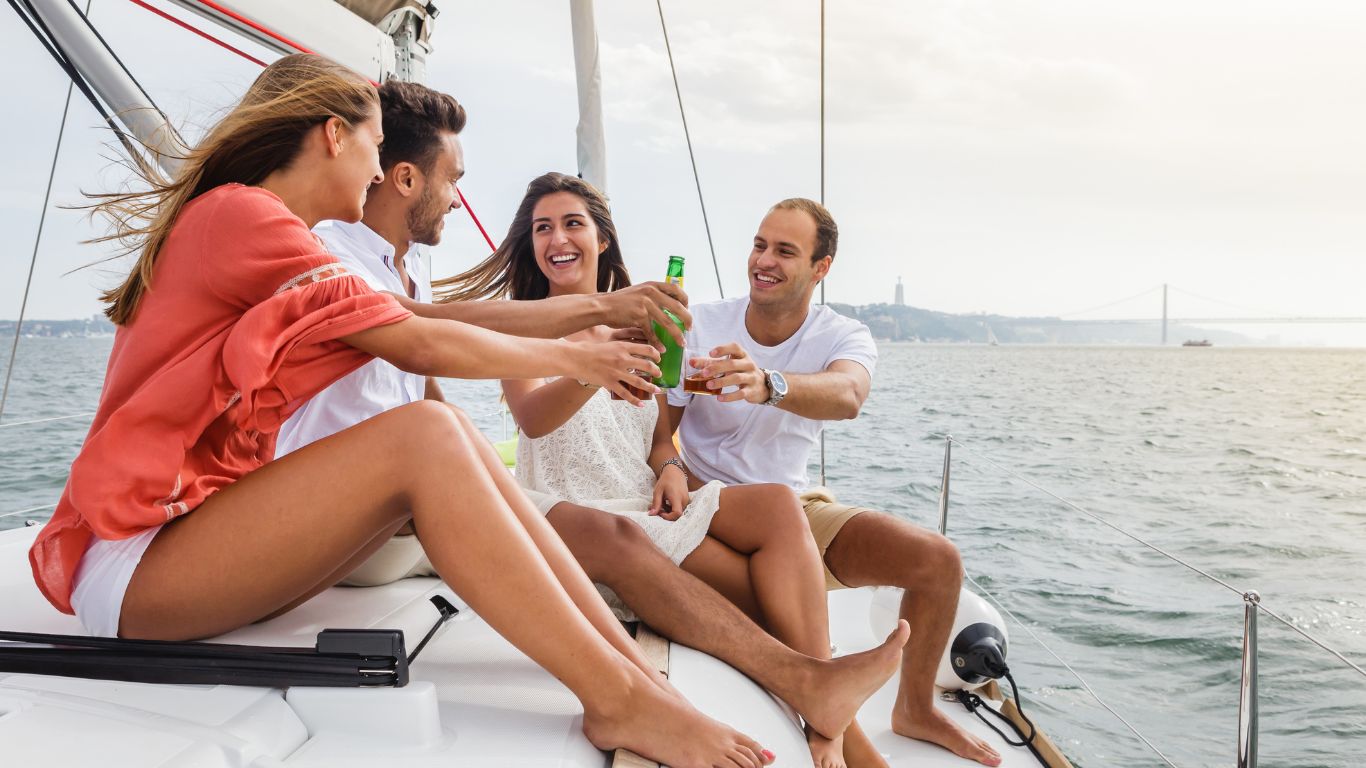Boating can be a relaxing and enjoyable activity, whether cruising on a serene lake or navigating the open sea. However, introducing alcohol into the mix significantly raises the risks for both boat operators and passengers. Understanding the impact of alcohol use on boating safety is crucial for preventing accidents, ensuring legal compliance, and protecting lives.
How Alcohol Impairs Boat Operators and Passengers
Impaired Judgment and Reaction Time
Alcohol significantly impairs cognitive functions, including judgment and reaction time. For boat operators, this means slower decision-making and delayed responses to sudden environmental changes, such as obstacles or weather conditions. Impaired passengers are also less likely to respond appropriately in emergencies, increasing the overall risk of accidents.
Decreased Coordination and Balance

Operating a boat requires good coordination and balance, skills that are severely compromised by alcohol consumption. Even at low blood alcohol concentrations (BAC), boat operators may find it challenging to steer, throttle, or dock the boat safely. Passengers with impaired balance are likelier to lose their footing and fall overboard, especially on a moving vessel.
Amplified Effects on the Water
The effects of alcohol are magnified on the water due to additional factors such as sun exposure, wind, and the boat’s rocking motion. These elements can accelerate dehydration and intoxication, making it easier to become dangerously impaired even after consuming a small amount of alcohol.
Legal Consequences of Boating Under the Influence
Heavy Fines and Penalties
Legal repercussions for operating a boat under the influence of alcohol are severe. Fines vary by state or country but are generally designed to be steep enough to deter unsafe behavior. Repeat offenders face increasingly harsher penalties.
Risk of Imprisonment
If boating under the influence results in an accident, injury, or death, the operator may face imprisonment. The severity of the sentence usually correlates with the gravity of the incident.
Suspension or Revocation of Boating License
Convictions for boating under the influence often result in the suspension or revocation of the boater’s license, rendering them legally unable to operate a boat in the future.
Mandatory Education and Rehabilitation

Offenders may be required to attend alcohol safety education programs or complete rehabilitation courses. These programs aim to correct behavior and prevent future incidents.
Civil Liability
In addition to criminal penalties, boat operators may also be civilly liable for any damages, injuries, or deaths resulting from their impaired boat operation. This can lead to costly lawsuits and financial ruin.
Strategies to Prevent Alcohol-Related Incidents on Boats
Designate a Sober Skipper
Always appoint a designated sober skipper responsible for operating the boat. This person should abstain from alcohol for the trip to ensure the safety of all on board.
Educate All Passengers
Make sure everyone on board understands the dangers of boating under the influence. Education can be a powerful deterrent against irresponsible behavior.
Plan Alcohol-Free Activities
Organize games and activities that do not involve alcohol to keep everyone entertained and minimize the temptation to drink.
Stock Up on Non-Alcoholic Beverages and Snacks
Ensure there are plenty of non-alcoholic beverages and snacks available. Staying hydrated and well-fed can help reduce the desire to consume alcohol.
Have a Safety Plan
Always have a safety plan, including a designated driver for the return trip. Ensure everyone knows what to do in case of an emergency.
If Alcohol Consumption is Unavoidable
If alcohol consumption cannot be avoided, it should be done responsibly and in moderation. Know the legal alcohol limits for boating in your area and adhere to them strictly.
FAQs
What is the legal blood alcohol concentration (BAC) limit for boating?
The legal blood alcohol concentration (BAC) limit for boating varies by jurisdiction, but it is generally 0.08%, similar to driving a car. Some areas have even stricter limits for boat operators.

How does alcohol affect boating differently than driving a car?
Alcohol affects boating more severely due to environmental factors such as sun exposure, wind, and the rocking motion of the boat. These elements can enhance the effects of alcohol, leading to quicker impairment compared to driving on land.
Can passengers legally drink alcohol on a boat?
While passengers are often legally allowed to consume alcohol on a boat, it’s essential to understand that impaired passengers can pose significant safety risks. They might be at a higher risk of falling overboard or causing distractions to the boat operator.
What are the penalties for boating under the influence (BUI)?
Penalties for boating under the influence can include heavy fines, imprisonment, suspension or revocation of the boating license, mandatory education or rehabilitation programs, and civil liability for any damages, injuries, or deaths caused.
Do boating under the influence (BUI) laws across states differ?
BUI laws and their enforcement can vary significantly between states and countries. Always check the local regulations before operating a boat to ensure compliance.
What should I do if someone on my boat is drunk and refuses to follow safety guidelines?
If someone on your boat is drunk and refuses to follow safety guidelines, it is crucial to prioritize the safety of everyone on board. Encourage the person to sit and secure themselves in a safe area. In severe cases, return to shore and seek assistance from authorities if necessary.
Conclusion
Responsible alcohol consumption is crucial for boating safety. The combination of water, sun, and motion amplifies the effects of alcohol, making it much more dangerous than consuming alcohol on land. By understanding the risks and legal consequences and adopting preventive strategies, boat operators and passengers can enjoy a safe and pleasurable boating experience.









